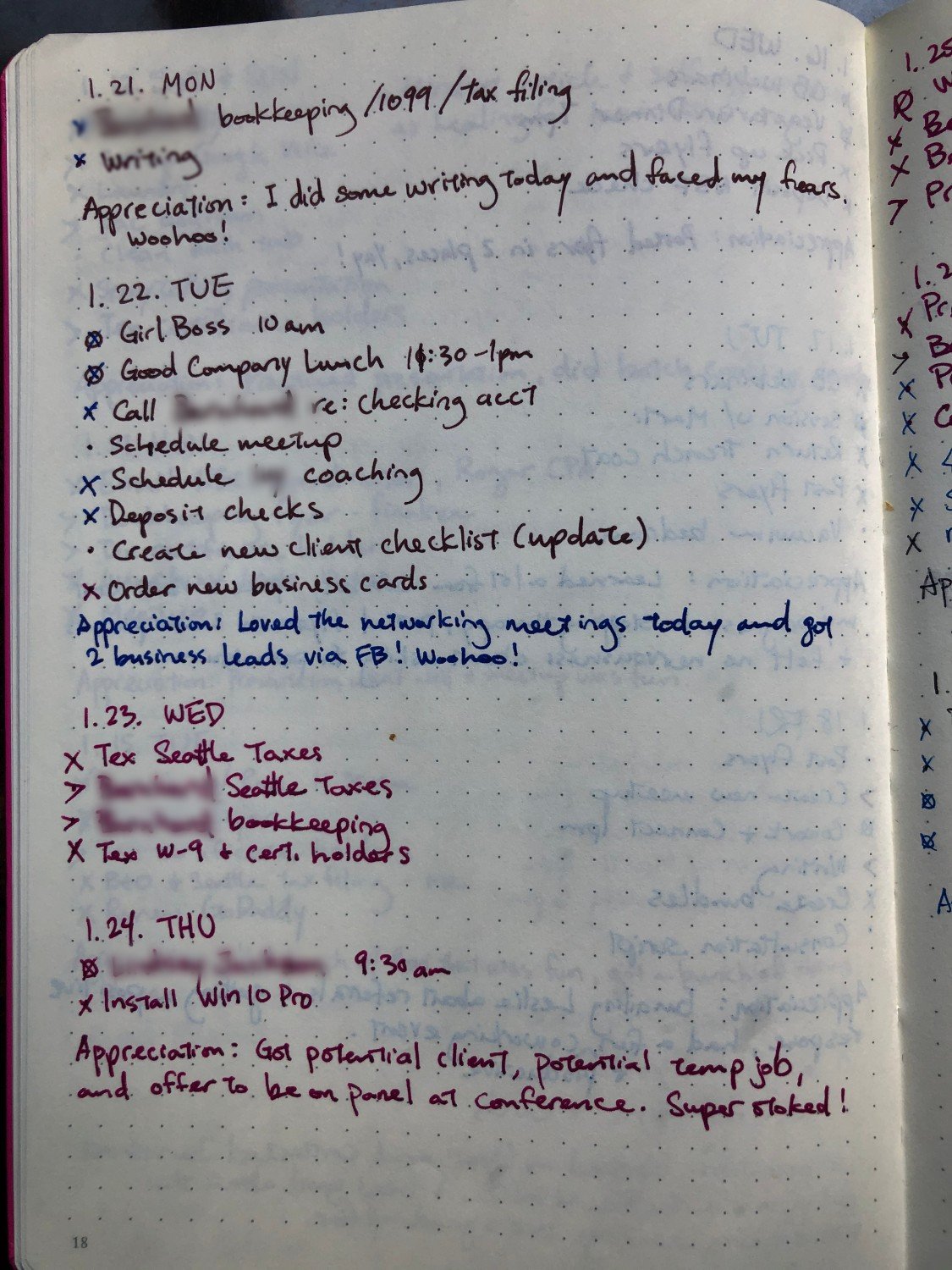The Practice That Changed Everything
This is the fifth and final post in my writing series, An Accountant Learns to Write Again. The earlier posts are here:
Part 1: An Accountant Learns to Write Again
Part 2: If I Can’t Write as Well as a Professional, Why Bother?
In my previous articles in this series, I wrote about how crippling doubt kept me from writing and how I found had to change my perspective of failure. I traced this back to how we learned to define our self-worth as children and how we view success and failure.
I realized that because my parents had high expectations for me and used criticism as motivation, I learned to diminishing small successes as "not enough." This led to my seeking external validation as an adult, mostly in the area of work. But when we work for ourselves, there's no one else to validate us except ourselves.
Once I saw my desperation for external validation, I needed to make a choice. I had always felt the most motivated when I was doing the work for someone I cared about or for something I believed in. I rarely experienced enjoying my work for its own sake, at least not the things I do for money. Even though I wanted to start a business and want to write, most of the time I felt challenged, frustrated, terrified, bored, or neutral when doing them. When so much of my experiences were negative and stressful, it was hard to look forward to the work.
But I knew I couldn't work for myself without an internal source of motivation. Ten years ago, I had tried to start a business and ran into the same problems. At that time, I backed off from that dream and eventually ended up in accounting. I had tried enough other paths to know that I would never be satisfied without giving writing a shot. My desire to make this work was greater than my fear. I had to change, but how?
Self-Parenting
Much of growth and healing is about learning to parent ourselves in areas where we expect others to take care of us or motivate us. We are social animals, so most healthy individuals will need and want others around. But we can't expect others to motivate us all the time. They are not always available, while we are always with ourselves. There is a big difference between appreciating others' feedback and needing others' approval.
Self-parenting means learning to give ourselves what we seek from others. As babies, we depended on parents to provide everything for us. As we got older, we learned to tie our own shoes, wash our own bodies, read for ourselves, cook our own food, make our own living. But our emotional education is not as structured as our intellectual education, so there may be skills we never learned if they were never modeled for us.
Emotional self-reliance means giving ourselves the love, care, appreciation that we seek from others. No matter how old we are, we each have an inner child who learned to deal with the world before developing words and logical thought. That child still requires caring, and our adult self can provide it to her.
We can tend to think that we need love and approval from others and that it "doesn't count" when it comes from ourselves, but it actually does. After all, we are the ones who generate the emotions even when the stimulus comes from the outside. We can learn to generate the same emotions intentionally. In other words, we can feel good by feeling good.
If external validation motivated me, then what I needed to learn was internal validation — appreciate myself first. I could no longer afford to view my work as shitty until someone came along to tell me otherwise.
Appreciation the Growth-Mindset Way
Having learned about growth and fixed mindsets, I knew that not just any kind of appreciation would work. In her book Mindset: The New Psychology of Success, Dr. Carol Dweck discusses how to encourage the growth mindset in children. Instead of praising intelligence or talent, which are fixed value judgments, she recommends praising specific efforts and strategies that led to the desired results.
Here's an example of a fixed mindset praise: "That was an amazing science project! You are so smart!"
A growth mindset praise might be: "That science project took a lot of work! The research you did on photosynthesis taught me something I didn't know!"
The difference may seem subtle. The fixed mindset praise focuses on defining the child with a value judgment. The growth mindset praise emphasizes effort and strategy toward a goal. By receiving value judgments, even if positive, children tend to learn that the results of their work is tied to their worth. Value judgments tell them they are either accepted or rejected as people.
Instead, when the focus is on effort and strategy, children tend to value the learning rather than what the results say about them. Mistakes and failures are no longer things to be afraid of but a normal part of the learning experience.
I decided to turn this concept around and apply it to myself.
The Practice
The practice I came up with was deceptively simple: at the end of each day, appreciate and feel gratitude for tasks I had done that day, no matter how small, that moved my business forward. I wrote it down in my planner to make it more official.
I appreciated emailing an acquaintance to let her know about my new business. I appreciated posting my flyers at coffee shops. I appreciated going to a networking meeting. I appreciated meeting with a potential client.
A planner page from my appreciation practice
I say this is deceptively simple because I also monitored what was going on in my head throughout the day. I encouraged myself to learn from situations where I felt anxious or felt like I screwed up. If I started to shame myself for a mistake or awkward moment, I told myself that it was the fixed mindset talking and wasn't the truth. The truth was that I was going through a learning curve, and mistakes and awkwardness were normal.
After about a week, I noticed a change. Instead of waiting to appreciate myself at the end of the day, I simply felt good about completing small tasks. In fact, I started to look forward to accomplishing tasks because I knew I would feel good about them later. It became a positive feedback-loop. Instead of being boring and tedious, these tasks became satisfying.
I'd spent years waiting for inspiration to drive me forward and fearing I would lose it when I had it. Now I realized that while inspiration can provide direction, appreciation was a far more reliable and consistent fuel.
This wasn't the end of the story. Over the next year or so, I continued to work on expressing myself and find my voice as a writer. However, I mark this practice as the turning point — the choice to support my efforts rather than condemn them for not being good enough. It wasn't an overnight change — I slid back and forth a few times, as one does. But by being on my side instead of being against myself, those later efforts were made far easier.
These days, I no longer have dread and anxiety at the idea of writing. Challenges I encounter in my work have become fun puzzles to solve rather than proof that I'm not a good writer. I love writing again.
































